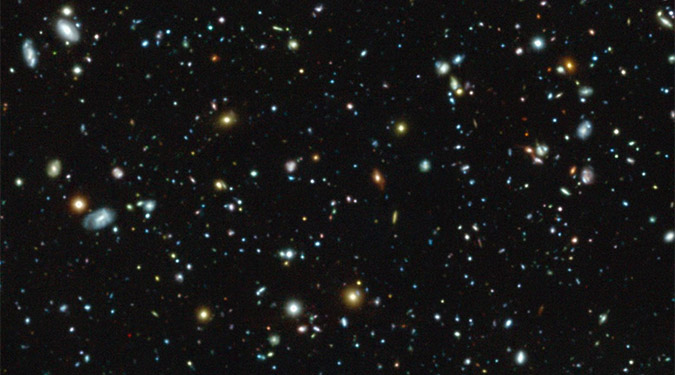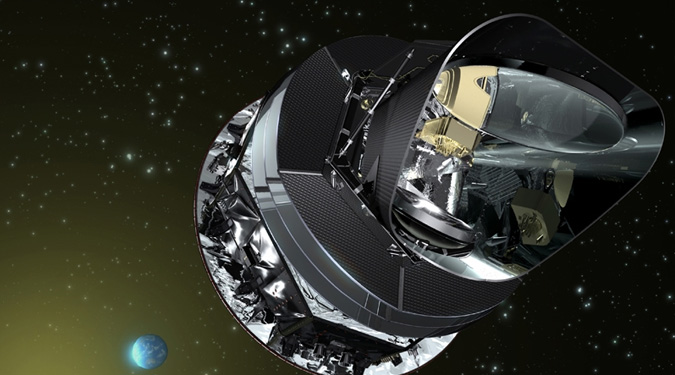Cosmology
At MSSL Cosmology we are interested in not only applying statistical and informatics techniques to observational data but also in developing new analysis techniques and methodologies to extract the maximal amount of scientific information from data.
In order to extend our understanding of cosmology it is necessary to confront theory with observational data. In this setting one inevitably encounters statistics. Astrostatistics refers to the development and application of advanced statistical methods for the purpose of studying astrophysical processes and effects. It is critical that principled statistical methods are used to ensure that the maximal amount of scientific information is extracted from observational data and that the resulting scientific conclusions are robust.
In addition to statistical methods, informatics techniques are also very powerful for extracting scientific information from observational data. These types of techniques have close links with information theory, signal processing and computational harmonic analysis. Wavelet methods, for example, allow one to probe both spatial- and scale-dependent signal characteristics simultaneously. Such techniques are very useful in studying physical phenomena since many physical processes are manifest on particular physical scales, while also spatially localised. Recent developments in this domain have led to the theory of compressive sensing, a revolutionary breakthrough in the field of sampling theory, which provides a powerful framework for solving inverse problems. Finally, it is important to recognise that deep connections can often be made between statistical and informatics methodologies.

Find out about the different areas of our cosmological research.

Find out about the missions and projects we are involved in.

 Close
Close



